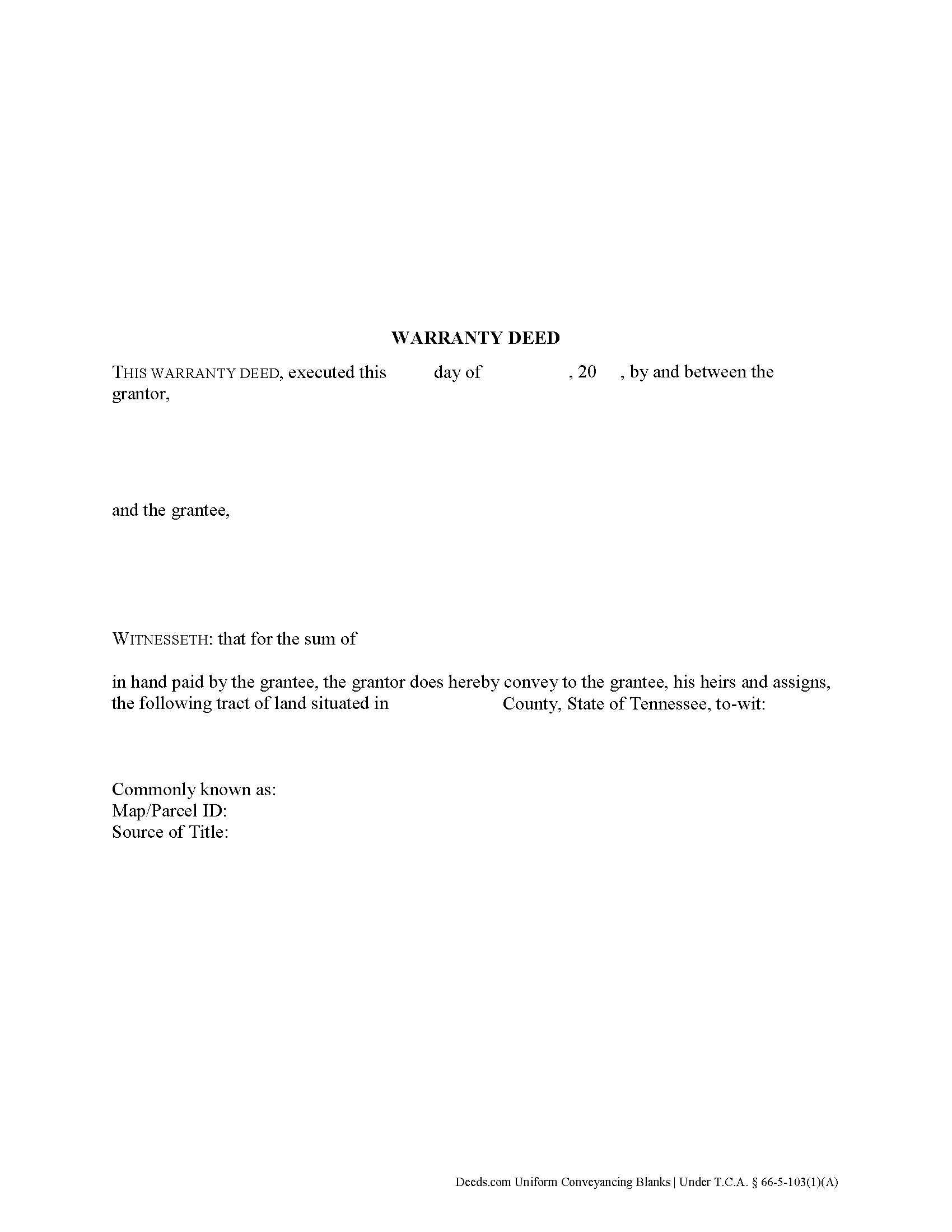Download Tennessee Warranty Deed Legal Forms

Tennessee Warranty Deed Overview

In Tennessee, title to real property can be transferred from one party to another using a warranty deed. When recorded, a warranty deed conveys an interest in real property to the named grantee with full warranties of title.
In Tennessee, warranty deeds are statutory. They must use the term "convey," and contains language stating that the grantor will defend the title against "all persons whomsoever" (66-5-103(1)(A)). A warranty deed offers the highest level of protection for the grantee (buyer). It conveys real property in fee simple and contains implied covenants that the grantor holds title to the property and has good right to convey it; and that the property is free from encumbrances (with the exception of any noted in the deed). The guarantee is greater than that of a limited or special warranty deed, which only protects against claims that arising while the grantor held title to the property, or a quitclaim deed, which offers no warranties of title at all.
A lawful warranty deed includes the grantor's full name, mailing address, and marital status, the consideration given for the transfer, and the grantee's full name, marital status, vesting, and mailing address. Vesting describes how the grantee holds title to the property. Generally, real property is owned in either sole ownership or in co-ownership. For Tennessee residential property, the primary methods for holding title are tenancy in common and tenancy by entirety. A conveyance of real estate to two or more persons creates a tenancy in common. Married couples have the option to vests as tenants by entirety. T.C.A. 66-1-107 abolishes survivorship in joint tenancy. Consult a lawyer for questions regarding joint tenancy and/or survivorship rights in Tennessee.
As with any conveyance of realty, a warranty deed requires a complete legal description of the parcel. Recite the prior deed reference to maintain a clear chain of title, and detail any restrictions associated with the property. The completed deed must be acknowledged by the grantor (and his or her spouse, if applicable) in the presence of a notary. Finally, the deed must meet all state and local standards for recorded documents.
Record the original completed deed, along with any additional materials, at the recorder's office in the county where the property is located. Recordation taxes are due upon recording. See 67-4-409 for exemptions. Refer to the same statute and contact the appropriate recorder's office for information on up-to-date fees.
This article is provided for informational purposes only and is not a substitute for the advice of an attorney. Contact a Tennessee lawyer with any questions related to the transfer of real property.
(Tennessee WD Package includes form, guidelines, and completed example)